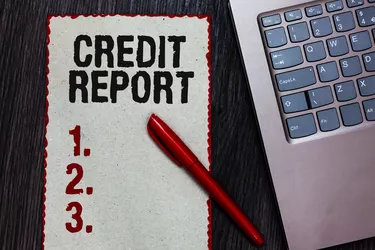
The oldest of the three major credit rating agencies, Equifax, started in the 1890s as a company that sold credit reports of customers to members of the Retail Grocer's Association. If you see EFX on a report, it is an abbreviation for this company. EFX scores are technically not a true FICO score but are essentially close enough.
Identification
Video of the Day
The acronym "EFX" comes from the stock ticket symbol for the company. The other two credit agencies also sometimes go by this. TransUnion uses "TU" and Experian "XP." Until 1979, Experian was known as "Retail Credit." During the 1970s it became the first credit rating agency to transfer files written on index cards to computer databases.
Video of the Day
Features
Equifax uses abbreviations on its credit reports for most of its information. Installment accounts received the letter "I" and a number corresponding with the status of the account. "I1" means the account has never been past due. The abbreviations on an Equifax report can change when you order additional services.
The acronym "EFX" comes from the stock ticket symbol for the company. The other two credit agencies also sometimes go by this. TransUnion uses "TU" and Experian "XP."
Equifax Score
People tend to refer to FICO scores as the "credit score" because most lenders use the FICO algorithm. Equifax sells the Beacon score, which is based on the FICO model and gives similar results. All major credit scoring models factor in financial data, such as debt owed, payment history and types of credit held, but differ in how much weigh they give each category.
Tip
Equifax and the other two major credit rating agencies are required by federal law to furnish one free report each year. They only offer this, however, through AnnualCreditReport.com. Other companies or websites may try to charge for an EFX report or make you sign up for other services. Even the EFX website does not offer a free report.